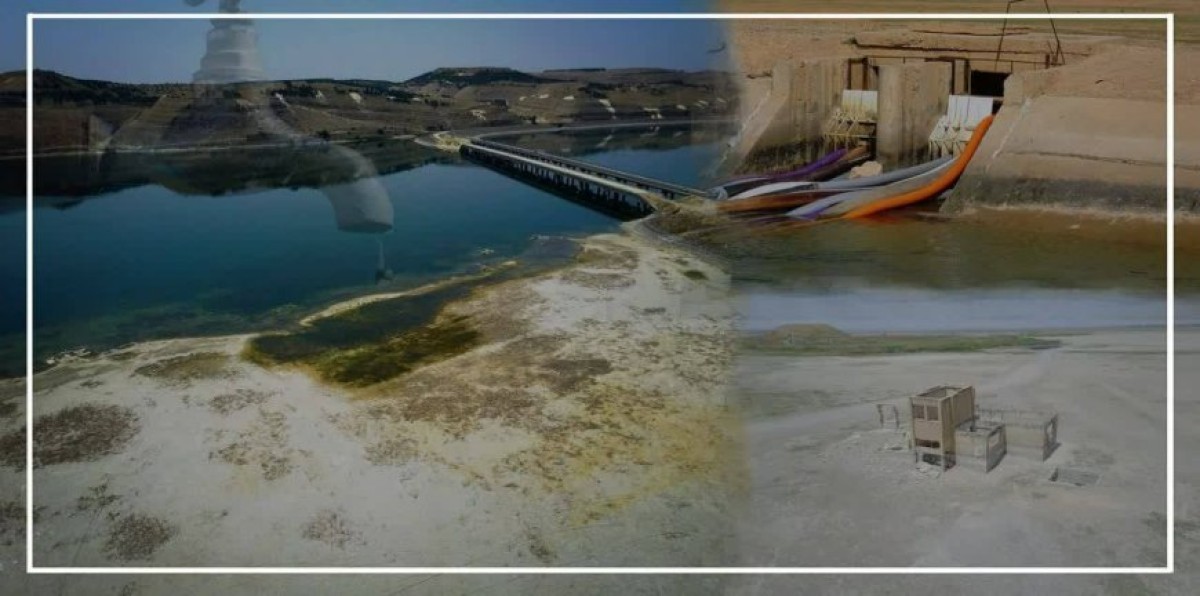 4271
4271
Turkey's Water Wars: Hydropolitics and Regional Instability
Turkey's Water Wars: Hydropolitics and Regional Instability
By: M. Sharifi
In the field of hydropolitics, there has been a significant shift in Turkey's approach to water resources in recent years. Ankara, citing issues of shortages and tensions in the water sector, has embarked on ambitious dam construction endeavors, notably through the implementation of the GAP project. The Güneydoğu Anadolu Projesi (GAP), a monumental initiative, aims at the construction of a series of dams and hydroelectric power plants along the Tigris and Euphrates rivers, which originate from the mountains of Central Anatolia and flow southeast towards Syria and Iraq. The project encompasses the erection of 14 dams on the Euphrates, 8 dams on the Tigris, and a total of 19 electric power plants.
Not content with the GAP project alone, Turkey has also ventured into the construction of several dams along the Araxes in northwest Iran under the Doğu Anadolu Projesi (DAP). Prior to the turn of the millennium, Turkey had operationalized merely four dams with a cumulative capacity of 621 million cubic meters in the Araxes basin. However, in the subsequent two decades leading up to 2020, an additional five dams, with a total capacity of 846 million cubic meters, were constructed. This surge in dam construction has resulted in the containment of a staggering 1.468 billion cubic meters of water from the Araxes River.
Regrettably, Turkey's relentless pursuit of dam construction projects, particularly the GAP and DAP initiatives, has raised concerns over the infringement upon the water rights of neighboring countries. By monopolizing the water flow of transboundary rivers, including the Tigris, Euphrates, and Araxes, Ankara has inadvertently jeopardized the environmental and food security of Iran, Iraq, Syria, Azerbaijan, and Armenia. Iran, in particular, bears the brunt of these actions, facing significant environmental repercussions and implications, notably in the form of the dust phenomenon.
The implications for Iran are multifaceted, with adverse effects permeating various sectors, from agriculture and industry to urban water supply. The DAP project, in particular, poses a looming threat to the northwest regions of Iran, imperiling agricultural lands, industrial activities, and, crucially, the provision of potable water to urban centers. The burgeoning crisis, if left unchecked, could unravel over the span of 10 to 30 years, casting a shadow of uncertainty over the region's future food security and economic stability.
The construction of new dams on rivers like the Araxes and Tigris not only imperils Iran's environment but also portends dire consequences for neighboring regions, including the desiccation of wetlands and forests in Khuzestan and the drying up of areas in Iraq. The burgeoning issue of fine dust, exacerbated by Turkey's dam construction, poses a significant threat to biodiversity, water scarcity, and environmental sustainability in the region.
In light of these escalating tensions and environmental perils, the imperative for robust water diplomacy cannot be overstated. The negative fallout from projects like GAP and DAP reverberates across Syria, Iraq, and Iran, manifesting in the desolation of vast swathes of agricultural land and the disruption of critical water resources. As the specter of water scarcity looms large, a concerted effort towards regional cooperation and diplomatic engagement becomes paramount. It is incumbent upon regional stakeholders to adopt a holistic approach to water management, transcending geopolitical boundaries and fostering a spirit of collaboration for the greater good.
In conclusion, the urgency of recalibrating water management strategies and fostering international cooperation in the face of mounting environmental challenges cannot be overstated. As the specter of water scarcity casts a long shadow over the region, policymakers must prioritize sustainable development, environmental protection, and cross-border collaboration to safeguard the well-being and prosperity of all nations involved. Only through a concerted effort towards inclusive diplomacy and strategic planning can the region hope to navigate the turbulent waters ahead and pave the way for a more secure and prosperous future.
 4271
4271
Comment
Post a comment for this article